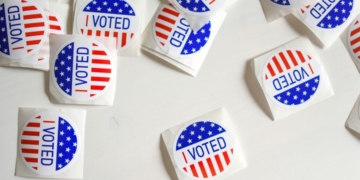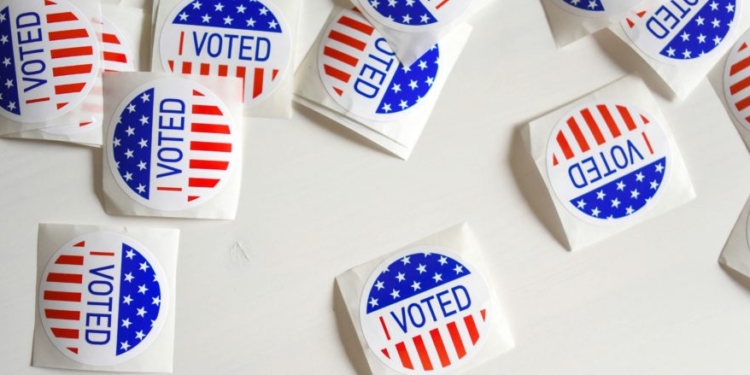The Left’s endless “sue-until-blue” strategy was once again defeated, this time in Kansas.
In overturning a lower court ruling, the Kansas Supreme Court dealt a deserved blow to Democratic elections lawyer Marc Elias and his merry band of partisan activists by rejecting Elias’ broad attacks on mail voting safeguards in the state.
In the Left’s endless quest to find friendly venues for their lawfare, Elias and the “nonpartisan” League of Women Voters, avoided Federal court and filed suit in Kansas state court. The case was an all-out assault on the integrity of Kansas elections. Elias’s goal was to strike down all limitations on ballot trafficking and the entire system of signature verification. In the left’s ideal world, partisan operatives should be able to collect unlimited mail ballots and the state should have no ability to verify the validity of those ballots.
Most states allow someone other than the voter to return the voter’s mail ballot. This can allow the pernicious activity known as ballot trafficking–where a person collects mail ballots from multiple voters and returns them to election officials. Typically, close family members are allowed to return ballots, but any reasonable person can spot the problems with strangers handling other people’s ballots. Alabama bans this practice entirely, but Kansas sought only to limit it.
Kansas’ restrictions are mild, to say the least. In Kansas, a voter can return up to ten ballots. So that means a quarterback could return his ballot and the ballots of the rest of the starting offense. Or that means you could return the ballots of your spouse, parents, in-laws, and grandparents, and still have a spot left over. That’s in contrast to states like Arkansas and Florida which limit a person to two ballots other than their own or New Jersey where the limit is three.
Elias asked the court to eliminate this generous provision and instead allow a person to collect and return an unlimited number of ballots. He specifically asked the Kansas Supreme Court to make unlimited ballot trafficking a constitutional right. The court declined. Instead, it held that the Kansas Constitution only prevents the legislature from adding voter qualifications. It does not bar the legislature from deciding how elections are conducted.
But the Left did not stop with attempts to force unlimited, unregulated ballot trafficking on a state that does not want it. Elias also asked the court to nullify Kansas’ signature verification requirements for mail ballots. Since voting by mail is done outside the presence of election workers, authenticating the identity of the voter is difficult—but it is essential for election integrity.
In Kansas, the voter’s signature is the only way to check that the person who voted the ballot (or had it brought in by another) is the voter who requested it. Other states have begun using driver’s license numbers, but Kansas has no other safeguard.
But that minor safeguard was too much for the Left. They claimed that providing a signature–as Kansans do every day when they use a credit card or perform countless other tasks–infringes on the right to vote. The court did not buy it. The justices issued the commonsense holding that Kansas has the right to ask a voter to prove that they are who they say they are. And a signature requirement is a common, logical way to accomplish this when the voter is not physically present.
That is a win for the rule of law, but it is not the end of the case. The court did return the case to the lower court to decide if Kansas’ process for letting voters fix, or “cure,” ballots with missing or non-matching signatures complies with equal protection and due process. Kansas law requires election officials to attempt to contact voters whose ballots fail signature verification, and voters have nearly two weeks after the election to fix problems. This system seems certain to satisfy constitutional due process demands, but don’t expect Elias to respect that.
This case is a repeat of the Left’s election litigation playbook: Sue in a friendly court to invalidate common election integrity measures using questionable legal theories; notch a win in a partisan lower court; lose on appeal; and repeat in every state. All the while Tweeting about “winning” big cases and talking tough on MSNBC.
In the meantime, the state must spend time and money defending these cases, elections officials must waste their time gathering discovery and sitting for depositions, and election administration is disrupted. Sanity prevailed in Kansas, but other states such as battlegrounds Pennsylvania and Michigan have repeatedly shown a willingness to do Elias’ bidding. American elections won’t be truly safe until the Left’s sue-until-blue strategy is brought to a deserved end.
Chad Ennis is the Vice President of Honest Elections Project.
The views and opinions expressed in this commentary are those of the author and do not reflect the official position of the Daily Caller News Foundation.
(Featured Image Media Credit: element5-digital/Unsplash)
All content created by the Daily Caller News Foundation, an independent and nonpartisan newswire service, is available without charge to any legitimate news publisher that can provide a large audience. All republished articles must include our logo, our reporter’s byline and their DCNF affiliation. For any questions about our guidelines or partnering with us, please contact [email protected].



























 Continue with Google
Continue with Google